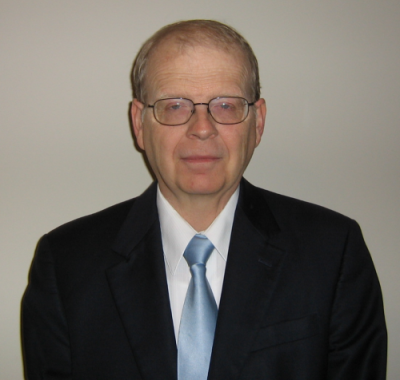Dear President-elect Biden, is unity possible?

President-Elect Biden, I congratulate you on being elected president of the United States. Your pledge to restore the soul of America and unite the country after our period of extreme polarization is inspiring. Of course, it seems every newly elected president makes that same pledge. President Nixon’s first great objective was to “Bring us together.” He later developed an enemies list of his political opponents. As he accepted victory, President Trump pledged to “bind the wounds of division.” He promised to be “president for all Americans: Republicans, Democrats, and independents.” I doubt history will record him as fulfilling that pledge.
Yet, I have more hope for your pledge because it is grounded in a transcendent concept. In a recent article for TheChristian Post, you wrote, “My Catholic faith drilled into me a core truth – that every person on earth is equal in rights and dignity, because we are all beloved children of God. We are all created ‘imago Dei’ – beautifully, uniquely, in the image of God, with inherent worth.” This sentiment beautifully echoes the ancient words of the Psalmist: “For you created my inmost being; you knit me together in my mother’s womb. I praise you because I am fearfully and wonderfully made.”
Later you wrote about how the imago Dei concept influences your policy: “We must again become a nation that defends the inherent dignity of every human, upholds the blessings of liberty, and provides a haven for those fleeing violence or persecution.” These are equally beautiful words, which I do not see as an imposition of your personal faith on others but as defending universal human rights. In fact, I hope you will defend every human life as Pope Francis forthrightly stated in his recent address to the United Nations.
It is troubling to see how simple and convenient it has become for some to deny the existence of a human life as a solution to problems that can and must be solved for both the mother and her unborn child. At the origin of this throwaway culture is a gross lack of respect for human dignity, the promotion of ideologies with reductive understandings of the human person, a denial of the universality of fundamental human rights, and a craving for absolute power and control that is widespread in today’s society. Let us name this for what it is: an attack against humanity itself.
It is clear Pope Francis sees protecting the unborn child as more than an issue of religious preference meant only for Catholics but as a fundamental human right with universal application to be practiced by world leaders regardless of their religious beliefs. It unfortunately follows that your recently stated intent to expand abortion by removing the Hyde Amendment qualifies, according to the Pope, as “an attack against humanity.” You likely disagree, but it is hard to conclude otherwise logically.
Additionally, removing the Hyde Amendment ironically imposes a particular belief upon many millions of pro-life Americans by using their tax dollars in a manner opposed to the very concept of the imago Deo you find so compelling. What might be the result? Perhaps this will prompt acts of proportional civil disobedience, such as explicitly not paying a percentage of federal taxes. This kind of reaction has an honored past, even though it comes with a price. Consider the words of Martin Luther King Jr. in his “Letter from a Birmingham Jail.”
An unjust law is a code that is out of harmony with the moral law. To put it in the terms of St. Thomas Aquinas: An unjust law is a human law that is not rooted in eternal law and natural law. Any law that uplifts human personality is just. Any law that degrades human personality is unjust. One who breaks an unjust law must do so openly, lovingly, and with a willingness to accept the penalty. I submit that an individual who breaks a law that conscience tells him is unjust, and who willingly accepts the penalty of imprisonment in order to arouse the conscience of the community over its injustice, is in reality expressing the highest respect for law.
Roe v. Wade nuanced this concern for human personality by stating the unborn child is not a person, but only a “potential” human life. But even Justice Blackman writing in his majority opinion admitted this understanding of human life was contingent upon the “light of present medical knowledge” and “this point in the development of man's knowledge.” That point of man’s knowledge was of course 47 years ago. It was before the more recent dramatic advances in embryology, mature ultrasound imaging, and prenatal surgery.
Among your many admirable qualities, I applaud your commitment to follow the latest science — not limited by what was known a half century ago. As you have stated, the indifference to current science contributed to the enormous loss of life during the current pandemic. What does science now say about when human life begins? The American College of Pediatricians admits to being pro-life, yet its very concise statement below is based upon human biology that is not in dispute.
The predominance of human biological research confirms that human life begins at conception — fertilization. At fertilization, the human being emerges as a whole, genetically distinct, individuated zygotic living human organism, a member of the species Homo sapiens, needing only the proper environment in order to grow and develop. The difference between the individual in its adult stage and in its zygotic stage is one of form, not nature.
What about mainstream opinion in the field of biology? In a recent survey of biology professors from over 1,000 institutions from around the world, “5,337 biologists (96%) affirmed that a human’s life begins at fertilization, with 240 (4%) rejecting that view… In the case of Americans who expressed party preference, the majority identified as Democrats (92%).” It seems clear there is more consensus today about the start of human life than Justice Blackman found in 1973.
Thus far I have pointed out challenges with your stated desire to protect the dignity of human life as defined by your faith, follow the findings of current science, and expand abortion while uniting the county. It appears that on this issue two sides are passionately and seemingly hopelessly divided. One side totally focuses on a woman’s right to choose, the other on the right to life of the unborn child. Although I am pro-life and opposed to abortions except for the life and health of the mother, I think by only and immediately imposing the kind of restrictions Poland recently adopted on abortions without doing the hard, slow work of empathic listening, softening of hearts, creative social policy, and faith-based and community support there might be even greater unrest here than Poland experienced.
I do believe, however, unifying progress on this issue can begin once all sides agree on two foundational statements:
- An unborn child is a living human being and not a collection of fetal tissue. Besides the moral and scientific information presented above, a growing number of women who have experienced miscarriages are now publicly speaking out about the personhood of these tragically lost babies.
- Women with unplanned pregnancies do indeed often face tremendous challenges in carrying an unborn child to term and need ongoing and comprehensive support. According to the Guttmacher Institute's 2014 Abortion Patient Survey only “14% of abortion patients were married …[and] three-fourths of abortion patients were low income.”
The data show a disproportionate number of women having abortions are unmarried and low income. Perhaps community practices and government policies that support both marriage and poverty reduction could help make abortion rare, as President Clinton once advocated. Robert Putman, Professor of Public Policy at Harvard University, has found that increasing each person’s social capital or social bonds would have a dramatic impact on these issues, as well other matters of public concern.
Getting married is the equivalent of quadrupling your income and attending a club meeting regularly is the equivalent of doubling your income. The loss of social capital is felt in critical ways: Communities with less social capital have lower educational performance and more teen pregnancy, child suicide, low birth weight, and prenatal mortality. Social capital is also a strong predictor of crime rates and other measures of neighborhood quality of life, as it is of our health.
A consensus around these findings is emerging across of wide spectrum of organizations. The Search Institute’s research has linked developmental relationships and community assets with positive outcomes in youth. It found that youth with greater numbers of developmental assets are less likely to engage in risk-taking activities, such as the use of alcohol, tobacco and other drugs, or early sexual activity. Likewise, Planned Parenthood, the largest provider of abortions, has discovered evidence-based sex education programs can help teens delay sex, reduce the number of sexual partners, and reduce the frequency of sex. Care Net, one of the largest networks of pregnancy centers, admits the short-term support it offers must link to ongoing relationships that local churches can provide. Educators are piloting programs to help single mothers succeed in college.
President-Elect Biden, your skills in bringing together disparate constituencies served you well to win an election in the midst of extreme polarization. These very skills could be used to bring together women’s advocates, social scientists, faith leaders, community leaders, and government officials of both parties to build upon areas of common agreement and current research. In this way, perhaps you might address a variety of social concerns, make abortion truly rare, and, yes, restore the soul of America.
Ronald Sloan is a retired academic administrator who served at both public and Christian institutions of higher education. He currently teaches as an adjunct music instructor at Taylor University, volunteers at his church, and serves as a court-appointed advocate for children needing special services.



























